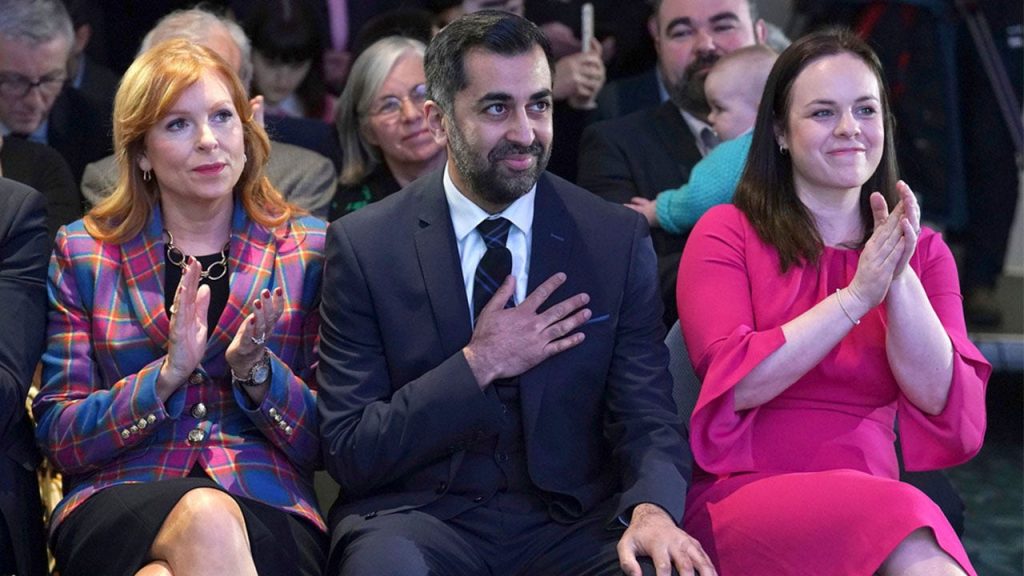Scotland’s controversial new hate speech law has sparked fierce backlash from critics, including former adviser to Prime Minister Boris Johnson, Thomas Corbett-Dillon. The law aims to provide greater protection for victims by criminalizing behavior intended to stir up hatred based on prejudice towards characteristics such as age, disability, religion, sexual orientation, transgender identity, and variations in sex characteristics. Offenses can include sharing offensive rhetoric across multiple media platforms, and those convicted could face fines and up to seven years in prison. However, critics like J.K. Rowling have deemed the law as ludicrous and potentially threatening to free speech.
Corbett-Dillon expressed concern that individuals like J.K. Rowling could be targeted under the new legislation for refusing to refer to trans people in a certain way online. He argued that the law fails to protect women and may not address issues such as men entering female sports competitions or bathrooms. Despite criticism, the Scottish government has defended the law as an essential element in building safer communities free from hatred and prejudice. Minister for Victims and Community Safety Siobhian Brown emphasized the traumatic and life-changing impact of physical, verbal, or online attacks, stating that the legislation is part of a broader approach to tackling harm.
While the government asserts that protections for free speech are built into the legislation, critics like Faculty of Advocates’ Criminal Bar Association President Tony Lenehan have raised concerns that the law could potentially target journalists, comedians, debaters, and dramatists. Scotland’s national police have denied claims that they would proactively target such groups, but critics argue that the focus should be on protecting free speech rather than advancing the rights of specific communities. Corbett-Dillon called for both Scotland and England to enshrine freedom of speech into their laws, highlighting the ongoing tensions between free speech advocates and those seeking to protect marginalized groups.
Despite the government’s efforts to ensure a balance between protecting individuals from hate speech and safeguarding free speech rights, the implementation of the new hate speech law in Scotland has reignited debates on the limits of expression. Critics argue that the legislation could stifle open dialogue and artistic expression, while proponents maintain that it is necessary to combat prejudice and create safer communities. As the law is put into effect, its impact on public discourse, social interactions, and the rights of individuals to express themselves freely remains a topic of contention among different stakeholders in Scotland and beyond. The need to strike a delicate balance between protecting vulnerable communities and upholding fundamental rights such as freedom of speech continues to be a challenge for policymakers, law enforcement agencies, and society as a whole.


